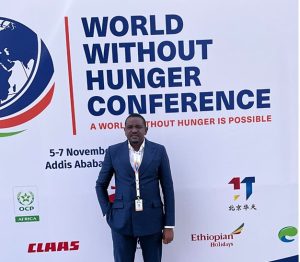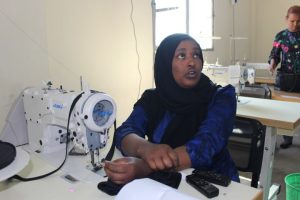
Despite Ethiopia’s abundant agricultural resources, including untapped land, water, and a productive young labor force, the sector has faced persistent challenges. These include traditional farming practices with limited mechanization, low yields, minimal input utilization, and reliance on imports for some major commodities.
To address these challenges, Ethiopia has initiated comprehensive policy and programmatic reforms as part of its Homegrown Reform I and II, with agriculture being a key focus. At the recent “World Without Hunger” summit, Agriculture Minister GirmaAmente (PhD) emphasized that the new agriculture policy introduces significant shifts, particularly in rural land use, natural resource management, and technology application. A dedicated
Agriculture Bank is being proposed to tackle the sector’s financing challenges, as financial institutions currently provide limited support.
Girma highlighted that investment and private sector partnerships are central to the reforms, serving as a cornerstone of the nation’s strategy. Sakina Usengimana, Managing Director of Afrifood and Chairperson of the Younger Agribusiness Forum, underlined the importance of affordable financing for farmers, particularly young people, to drive agricultural transformation across the continent.

Olaonipekun Taiwo, CEO of Farm Fixers in Nigeria, stressed that access to technology and subsidized agricultural inputs should be government priorities. He noted the importance of consistent policies to build investor confidence and encouraged fostering bilateral relations on agriculture-related issues.
Equipping farmers with modern technology and good agronomic practices, as well as providing technical and educational support, was emphasized as crucial for enhancing productivity. Taiwo also called for the provision of high-yielding, climate-resilient seeds and improved post-harvest management to combat food insecurity.

Albert Vegah, Sustainability Department Customers Program Coordinator in Cameroon, highlighted the need for alignment among governments, farmers, and investors to boost agricultural investment in Africa. He pointed out that the African Continental Free Trade Area (AfCFTA) plays a pivotal role in facilitating business by ensuring the free movement of people and goods.
Vegah further emphasized the importance of infrastructure development, including storage facilities, farm-to-storage networks, and logistics. Over 70% of post-harvest losses occur between farms and storage facilities, making investments in these areas vital. Research and development are also crucial, particularly to improve the shelf life of perishable agricultural products and enhance competitiveness in international markets.
Ethiopia’s commitment to fostering an enabling environment through technological support, flexible policies, and financial initiatives has advanced its agricultural sector. Once import-dependent, Ethiopia is now a major exporter, not only to Europe but also to other African countries. The nation’s focus on achieving food self-sufficiency positions it as a regional leader and a model for others to follow, he remarked.
BY BETELHEM BEDLU
THE ETHIOPIAN HERALD WEDNESDAY 13 NOVEMBER 2024





